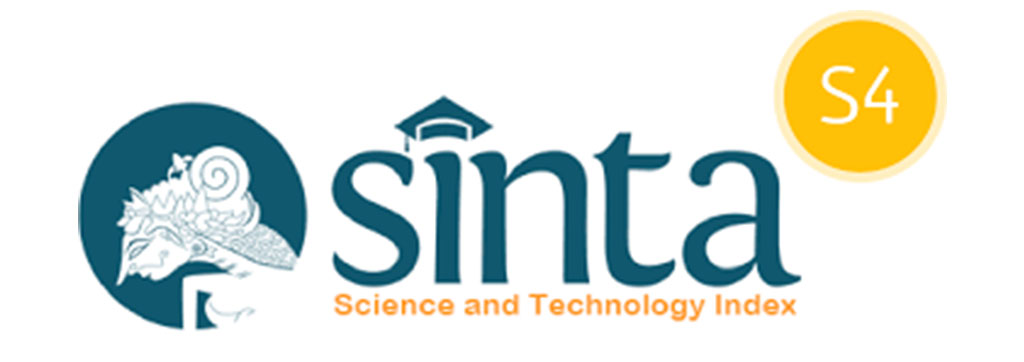Developing Emotional Intelligence and Competencies to Strengthen the Performance of Project Managers at the Indonesian National Construction Implementation Association East Java
Abstract
This study investigates the role of emotional intelligence and managerial competencies in enhancing project manager performance, with job attitude as a mediating variable, within construction companies under the Indonesian National Construction Implementation Association in East Java. Using a quantitative approach and surveying 182 project managers, the study assesses key constructs such as emotional intelligence (self-awareness, self-management, social awareness, and relationship management), managerial competencies (motives, traits, self-concept, and knowledge), job attitudes (commitment, satisfaction, involvement), and project performance (quality, quantity, timeliness, and cooperation). The findings reveal that emotional intelligence significantly affects project manager performance, particularly through improved self-awareness and social relationship skills. However, managerial competencies alone do not substantially influence performance unless supported by positive job attitudes. The study confirms that job attitude is a critical bridge linking emotional intelligence to improved performance outcomes. These findings underscore the importance of soft skills development in construction project environments and offer practical insights for enhancing leadership training, team dynamics, and project success rates. The study provides strategic recommendations for organizational growth and workforce management within Indonesia’s construction sector.
References
Hair, JF, Black, WC, Babin, BJ, & Anderson, RE (2010). Multivariate Data Analysis. (7th Edition). NJ: Prentice Hall.
Kagan, C., Burton, M., Duckett, P., Lawthom, R., & Siddiquee, A. (2019). Critical Community Psychology: Critical Action and Social Change. Routledge.
Lee, H. C., & Chen, K. Y. (2013). Exploring The Relationships Between Job Attitudes And Job Performance In The Hospitality Industry. International Journal of Hospitality Management, Vol. 32, pp. 199-206.https://doi.org/10.1016/j.ijhm.2012.04.007
Maqbool, R., Sudong, Y., Manzoor, N., & Rashid, Y., (2017). The Impact Of Emotional Intelligence, Project Managers' Competencies, And Transformational Leadership On Project Success: An Empirical Perspective. Project Management Journal. Vol. 48, Issue. (3), pp. 58–75.https://doi.org/10.1177/875697281704800304
Miner, J. B. (2005). Organizational Behavior 1: Essential Theories of Motivation and Leadership (1st ed.). Routledge.https://doi.org/10.4324/9781315702018
Pheng, L. S., & Chuan, Q. T. (2006). Environmental Factors And Work Performance Of Project Managers In The Construction Industry. International Journal Of Project Management, Vol. 24, Issue. (1), pp. 24–37.
Prentice, C. (2019). Managing Service Encounters With Emotional Intelligence, Journal of Retailing and Consumer Services, Vol. 51, pp. 344–351.
Rehman, S.U., Aslam, U., Yunfei, S., & Iqbal, J. (2019). A Multidimensional Model Of Job Attitudes: Investigating The Roles Of Job Satisfaction, Job Involvement, And Organizational Commitment In Predicting Organizational Citizenship Behavior. Sustainability, Vol. 11, Issue. (23), pp. 6671.https://doi.org/10.3390/su11236671
Rezvani, A., Chang, A., Wiewiora, A., Ashkanasy, N.M., Jordan, P.J., & Zolin, R. (2016). Manager Emotional Intelligence And Project Success: The Mediating Role Of Job Satisfaction And Trust. International Journal of Project Management, Vol. 34, Issue. (7), pp. 1112–1122.https://doi.org/10.1016/j.ijproman.2016.05.012.
Salovey, P., & Mayer, J.D. (1990). Emotional Intelligence. Journal of Imaginatio n, Cognition and Personality. Vol. 9, Issue. (3), pp. 185–211.https://doi.org/10.2190/DUGG-P24E-52WK-6CDG
Sarstedt, M., Ringle, C.M., Cheah, J.-H., Ting, H., Moisescu, OI & Radomir, L. (2020). Structural model robustness checks in PLS-SEM, Tourism Economics, Vol. 26 No. 4, pp. 531–554.
Smigla, J.E. & Pastoria, G. (2000). "Emotional Intelligence: Some Have It, Others Can Learn", The CPA Journal, Vol. 70, No. (6), pp. 60.
Spencer, L., & Spencer, SM (1993). Competence at Work: Models for Superior Performance; John Wiley & Sons: New York, NY, USA.
Stephens, J. P., & Carmeli, A. (2016). The Influence Of Emotional Intelligence And Emotional Climate On Working Relationships In Teams. Journal of Organizational Behavior, Vol. 37, Issue. (3), pp. 374–392.https://doi.org/10.1002/job.2044
Turner, J. R., & Müller, R. (2005). The Project Manager's Leadership Style As A Success Factor On Projects: A Literature Review. Project Management Journal, Vol. 36, Issue. (2), pp. 49-61.https://doi.org/10.1177/875697280503600206
Velnampy, T. (2007). Job Attitude and Employees' Performance of Public Sector Organizations in Jaffna District, Sri Lanka. Researchgate. Net, pp. 1–11.
Watkin, C. (2000). "Developing Emotional Intelligence", International Journal of Selection and Assessment, Vol. 8, No. (2), pp. 89–92.
Zhang, L., Wang, H., & Huang, Q. (2022). The Impact Of Emotional Intelligence On Managerial Performance: The Mediating Role Of Work Engagement And The Moderating Role Of Job Complexity. Journal of Business Research, Vol. 142, pp. 327–337.https://doi.org/10.1016/j.jbusres.2022.03.031
Zhu, Y., Liu, X., Guo, Y., & Zhao, L. (2021). Emotional Intelligence And Managerial Performance: The Roles Of Work Engagement And Job Crafting. Frontiers in Psychology, Vol. 12, pp. 667904.https://doi.org/10.3389/fpsyg.2021.667904
Copyright (c) 2025 Erman Hernadi, Lilik Kustiani, Bambang Supriadi

This work is licensed under a Creative Commons Attribution-ShareAlike 4.0 International License.


